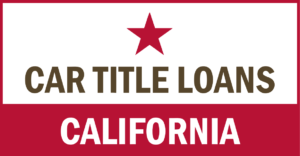There are numerous loan options on the market for people looking to finance personal or professional expenses.
Traditional loans and loans with a car title are two of the most popular types of loans. Terms, conditions, and repayment plans vary between the two.
You can select the loan that best suits your individual financial needs by being aware of the differences between these two types of loans.
How do Car Title Loans work?
Short-term loans that let borrowers use their car as security are known as car title loans, also referred to as auto title loans or pink slip loans.
As a result, the lender retains ownership of the borrower’s vehicle until the loan is fully repaid. As a form of secured loan, car title loans are generally associated with higher interest rates and costs than conventional loans.
The borrower must own the car outright or have a sizable amount of equity in it in order to be eligible for a car title loan.
The borrower’s steady income and a current driver’s license may also be requirements set forth by the lender.
Typically, the lender will offer a portion of the vehicle’s appraised value as the loan amount, with the loan amount being based on the value of the vehicle.
People with bad credit and those who require immediate access to funds are finding car title loans to be popular.
However, they have high fees and interest rates, which can make it challenging to pay them back. Lenders may take possession of the borrower’s car if they are not paid back on time.
How do Traditional Loans work?
Traditional loans are those without collateral, also referred to as unsecured loans or signature loans. These loans are available for many uses, including paying for college tuition, buying a house, and financing a car.
The majority of the time, banks, credit unions, and other financial institutions offer traditional loans.
A borrower needs a good credit score, a consistent source of income, and a low debt-to-income ratio in order to be approved for a traditional loan.
Based on the borrower’s creditworthiness and capacity for repayment, the loan’s principal and interest rate are determined.
Because they are deemed to be less risky for the lender, traditional loans have lower interest rates and fees than car title loans.
They might, however, have more stringent approval criteria and slower processing times.
Conclusion About Title Loans and Traditional Loans
Vehicle Title Loans vs. Which Are the Better Traditional Loans? Depending on your individual financial needs and circumstances, you may want to choose between traditional loans and car title loans.
A car title loan may be a good choice if you have bad credit or need quick access to money. The high fees and interest rates, as well as the possibility of losing your car if you default on the loan, must all be taken into account, though.
A traditional loan might be preferable if you have good credit and the patience to wait for the application to be processed.
Traditional loans typically have lower fees and interest rates, making them more manageable over time.
Traditional loans and car title loans both have benefits and drawbacks. Prior to deciding which course is best for your financial requirements, carefully weigh the advantages and disadvantages of each choice.
Consult a financial advisor or loan specialist if you’re unsure which option is right for you. Here at Car Title Loans California, we are here to help you to get the right loan.



